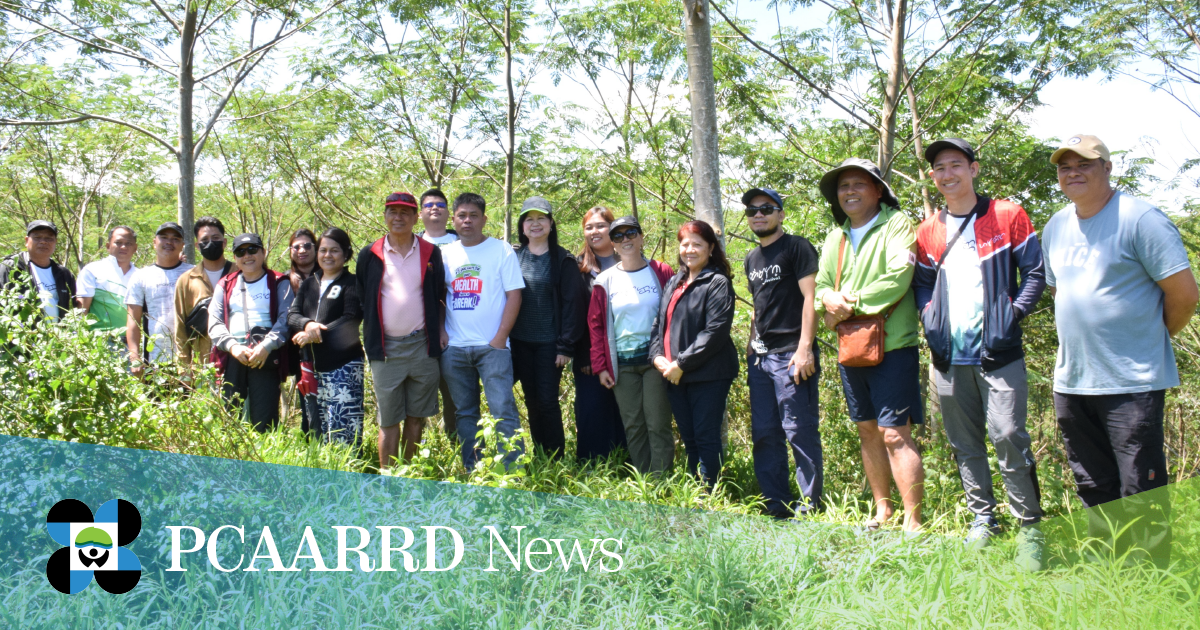With concerns over deforestation and restrictions on timber harvesting in natural forests, countries like the Philippines are increasingly looking at industrial tree plantations (ITPs) as a sustainable alternative. The Philippines, heavily reliant on wood imports, particularly from Malaysia and China, is actively working to strengthen its wood industries through research and development (R&D) initiatives.
ITPs, although accounting for only five percent of global forest cover, play a crucial role in global roundwood supply. Estimates suggest that they provide at least 35 percent of global roundwood.

A recent gathering in Camiguin Island held on March 11–15, 2024, served not only to assess ongoing ITP projects funded by the Philippine Council for Agriculture, Aquatic and Natural Resources Research and Development of the Department of Science and Technology (DOST-PCAARRD) but also to delve into current issues and challenges facing ITPs in the region.
The opening messages from Dr. Jupiter V. Casas, Research Director of Central Mindanao University (CMU) and Dr. Nimfa K. Torreta, Director of DOST-PCAARRD’s Forestry and Environment Research Division (FERD), emphasized the importance of impactful research and the development of community-centric products and technologies.
The program proceeded with presentations on accomplishments regarding insect pest and disease incidence and severity in Falcata plantations in Mindanao delivered by Project Leader Adrian M. Tulod, Dr. Nympha E. Branzuela, and For. Joan S. Gilbero. It was followed by a presentation on Growth Stress Attributes of Falcata by Project Leader Mark Jun A. Rojo.
The project on Falcata insect pest and disease incidence reported that gall rust is the most severe and widely-occurring disease among Falcata plantations in Regions 9, 10, 11, 12, and 13. Additionally, a policy recommendation on planting regulations to avoid the spread of gall rust is underway. The project is spearheaded by CMU and co-implemented by Agusan Del Sur State College of Agriculture and Technology (ASSCAT), Ecosystems Research and Development Bureau-Forest and Wetland Research, Development and Extension Center (ERDB-FWRDEC), and University of Southeastern Philippines (USeP).
Meanwhile, to combat these insect pests and diseases, ERDB-FWRDEC garnered results that could be the basis of recommendations on most suitable Falcata planting locations for improved production in Mindanao. This recommendation could also aid the Department of Environment and Natural Resources’ National Greening Program as Falcata is one of the program’s commodities.
At the request of farmers and sawmill operators in Mindanao, another project that examines growth stress of Falcata discovered that wood elements near the bark experience tensile stress, while those near the pith experience compressive stress. This project is being implemented by CMU with the assistance of ASSCAT. Moreover, the project team determined that girdling and hot water treatment are the most effective measures to decrease wood stress. These research outputs are bound to aid its beneficiaries through improved farming methods and interventions.
After the project presentations was a workshop on sequel projects. During the meeting, Dr. Guillermo A. Mendoza, a DOST Balik Scientist, acknowledged the significance of ITPs and encouraged continued R&D efforts in Mindanao, which is known as the timber corridor of the country.
Delegates from CMU, USeP-Tagum campus, ERDB-FWRDEC, and ASSCAT reaffirmed their dedication to advancing R&D programs for ITPs.
Dr. Torreta and ITPs’ ISP Manager Dalisay E. Cabral spearheaded discussions on enhancing collaboration among ITP stakeholders to address sustainable development challenges including integrated insect pest and disease management, effective silvicultural practices, and advancements in propagation technologies for various ITP species.
Through investments in research, innovation, and collaboration, the ITP research team aims to ensure that industrial tree plantations not only meet the region's wood demand but also contribute to natural forest conservation and community development.
Dr. Dennis M. Gilbero of ASSCAT concluded the event by expressing his gratitude for DOST-PCAARRD's support in advancing ITPs in Mindanao.

